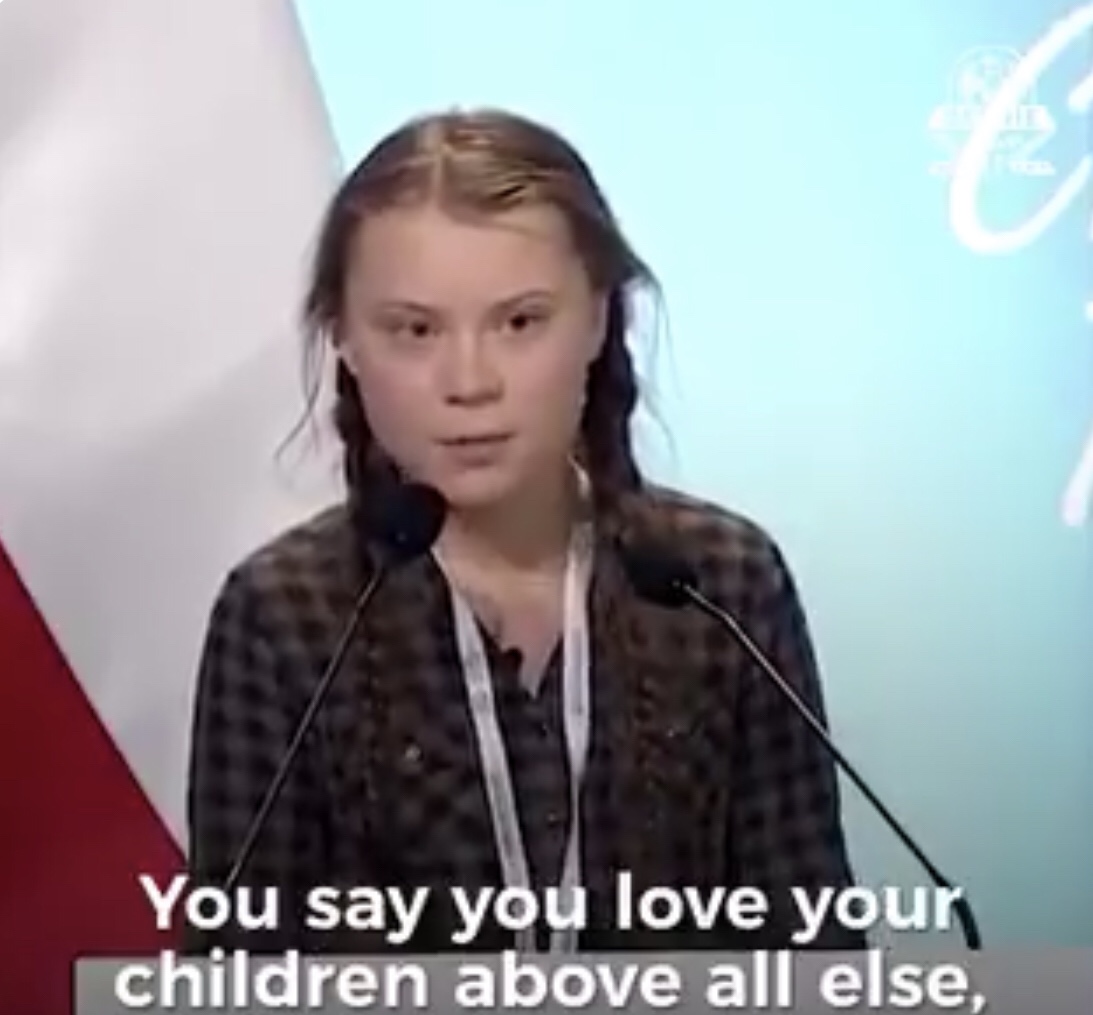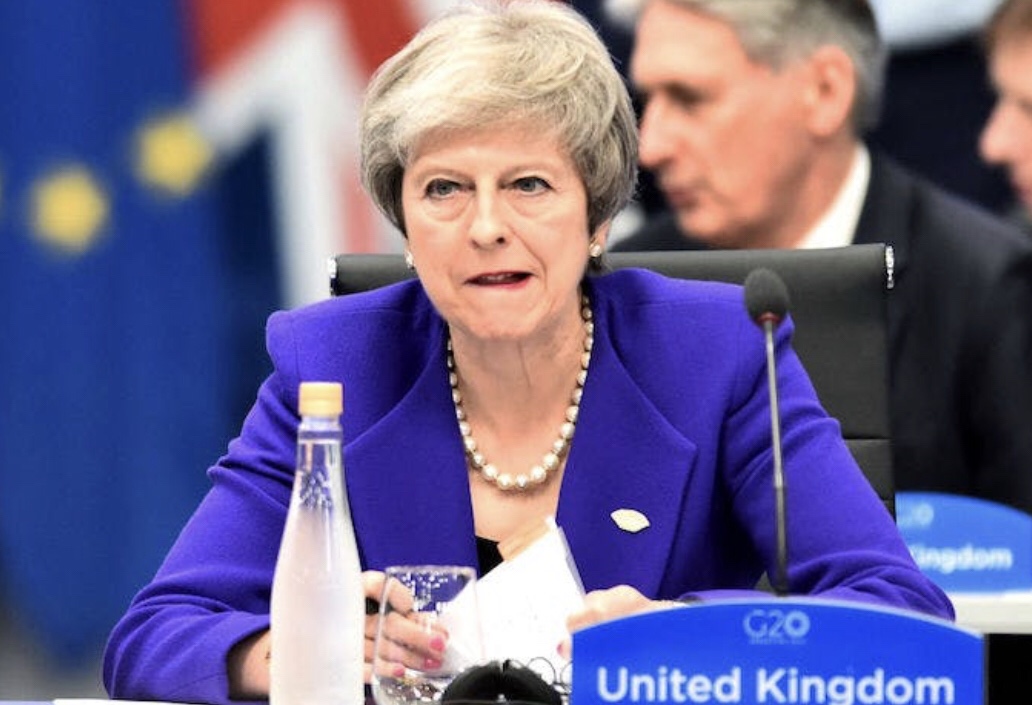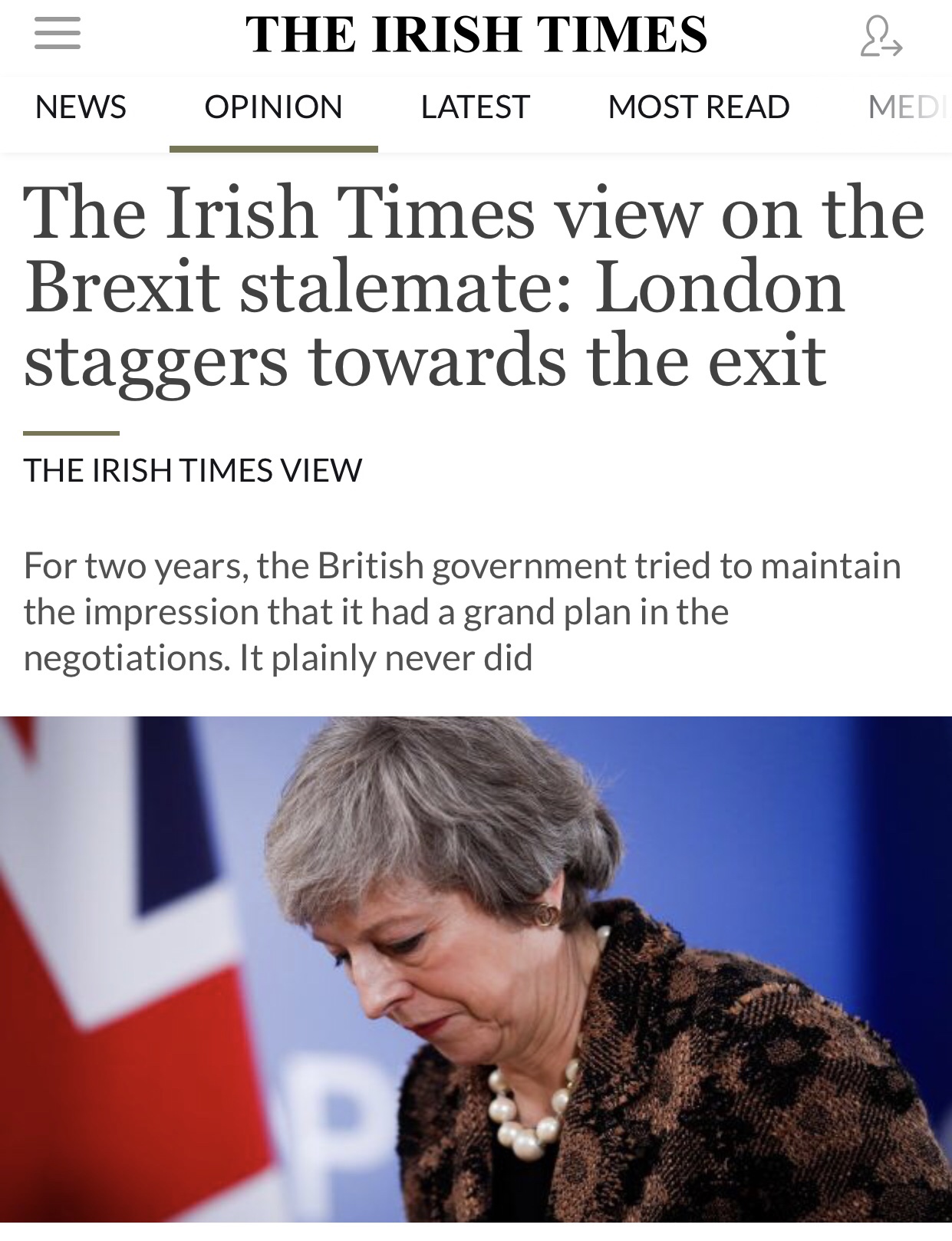“You say you love your children above all else, yet you are stealing their futures right before their very eyes,”
This 15-year-old Swedish activist GretaThunberg just called out world leaders at the UN Climate Conference in Katowice Poland, for their global inaction on climate change.

Thunberg became famous in August 2018 when she started a strike sitting outside the Swedish päParliament under the slogan “School Strike for the Climate”. Grete was invited by UN Secretray General to address the conference from the big stage and how she did it!
You can see her speech here: Greta Thunberg speech UN Climate Conference
Fraser Nelson Editor at The Spectator writes an interesting article today and you findnitvhere below. Nelson says: “The E.U. is v close to a deal. If it allows Britain the right to exit a new deal in future (in a way that any country can exit any agreement from Nato to E.U. itself) then her deal passes. Panic over. But if it won’t allow this, the deal is dead”.
I think that there is a chance that EU could make statements assuring that the backstop never will be used. There is a misudnerstanding that EU wants the backstop, but is equally in thenijterest of the EU to find a workable solution for the border as well as a ä FTA as soon as possible.

“Theresa May’s week has gone from bad to worse. In order to win the confidence vote tabled against her on Wednesday, May had to make several promises to her MPs: not to fight the next election, to get the DUP back on side – and to find a legally binding solution to the Irish backstop. The latter pledge appears to have already hit the buffers after a disastrous night for May at the EU council summit.
The Prime Minister attended the summit on Wednesday evening in the hope of securing new concessions to her Brexit deal. She asked the EU 27 to ‘work together intensely’ to tweak the deal – with the UK suggesting a new target for a trade deal by the end of 2021, in order to show the backstop was not indefinite.
However, EU leaders – along with the Commission – were thoroughly unimpressed by the whole thing. It seems that rather than be enticed to help May they questioned whether they should move forward at all – criticising the Prime Minister for not being clear – when questioned – about what she needs. There was a feeling in Brussels that May cannot say what will get this deal over the line, so what’s the point trying to help?
Matters are so bad that after the address the EU27 actually removed supportive lines from a draft statement drawn up to help ease British concerns. European Commission President Jean-Claude Juncker then added insult to injury by using a press conference to have a go at May for her ‘nebulous and imprecise’ approach. It’s not even clear there will be a Brexit summit in January.
So, has May really run out of road this time? It could still be the case that Brussels come round to the UK side’s thinking over Christmas. Figures like Juncker do not wish to appear too open to renegotiation in part because were they to move now, Brexiteers in Parliament could pressure May to demand even more concessions. But it’s clear that this trip has only served to undermine May’s approach– at a time when she desperately needed a boost. If this deal is to have any chance of passing Parliament, the backstop arrangement will need to be amended. Without that, the most likely scenarios are a second referendum, no deal or/and a general election. No.10 will be hoping for some supportive language from EU leaders today before everyone heads home from the summit”
Source: The Spectator
For two years, the British government tried to maintain the impression that it had a grand plan in the negotiations. It plainly never did.
After a week of convulsions in British politics, we are back where we were seven days ago. Theresa May is in a weaker position, having had 117 members of her parliamentary party vote no confidence in her leadership, but still she staggers on.
The hard Brexiteers in the party are also damaged, having tried and failed to dislodge their leader, but they remain implacably opposed to the EU-UK withdrawal agreement and still have the numbers to block it in parliament. The Labour Party is still disinclined to wield its power to shape the Brexit process, and the EU27 are only growing more exasperated with their dysfunctional negotiating partner. In other words, it’s a picture of almost total stasis.

What has changed is that another week has elapsed, and London is fast running out of road. The divorce is scheduled to take effect at 11pm on March 29th. The timetable means the withdrawal agreement must be approved by Westminster by the end of January.
But with May unable to secure a parliamentary majority for the text, and the EU making clear it will not dilute the legal text on the backstop – the chief object of the Brexiteers’ ire – a no-deal tailspin is increasingly likely.
For two years, the British government tried to maintain the impression that it had a grand plan in the negotiations. It plainly never did. May’s red lines – no single market, no customs union, no hard border in Ireland – boxed London in from the start, and the process has consisted largely of London slowly reconciling itself to that reality and duly abandoning its demands.
Now, May is quite openly winging it. As she fought for her job on Wednesday, she made an impossible pledge: to secure a legally binding solution to the backstop that would win the Democratic Unionist Party’s support for her deal. Within 24 hours, after an EU leaders’ summit in Brussels, that idea was roundly rejected. May reportedly asked the EU27 for a legal assurance that the backstop could only last for a year. In other words, she wants it not to be a backstop. That was quickly knocked back. EU27 leaders had expected May to seek a political declaration that might assuage some of her backbenchers’ concerns, but so far she has not made any specific request.
Broadly speaking, there are now four possibilities in play. One is that May eventually persuades a majority to support her deal, perhaps by forcing a vote at the last possible moment, in effect presenting a no-deal exit as the only alternative.
A second scenario is that May could defy her dissident colleagues and the DUP and seek a cross-party majority for a soft Brexit – a remote contingency, given her risk-averse nature. That leaves two options. One is to crash out with no deal. The other is a second referendum. Both are more likely today than they were a week ago.
Source: Irish Times






You must be logged in to post a comment.